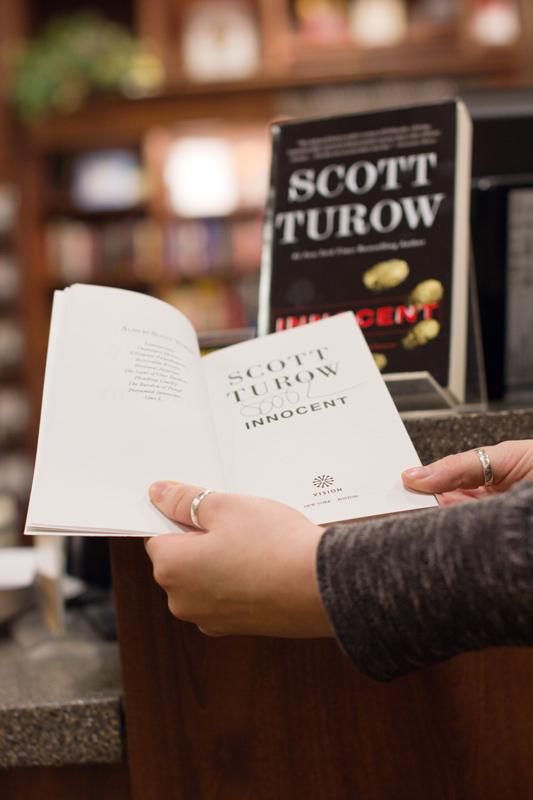Columbia residents braved wind, rain and chilly temperatures Friday night to hear New York Times best-selling author Scott Turow speak at Memorial Union.
Turow’s career distinctions include serving as a Jones Lecturer at Stanford University, practicing as an assistant United States attorney for eight years, publishing eight novels and two works of non-fiction, and playing in a band with fellow renowned authors Amy Tan and Stephen King. He spoke to the crowd in the Benton Bingham Ballroom about law, literature and the winding road that led him to become a professional novelist.
Turow, sometimes called “the father of the legal thriller,” began his literary career in Amherst College’s Creative Writing program in the late 1960s. Graduating in 1970 with high expectations, he found that a life of academia and what he calls “dissipated living” had not prepared him as much as he might have hoped to write the next great American novel.
“I knew something was wrong with my writing,” he said. “I was desperate, and I found that my desire to write about my experience was actually standing between me and my experience. I had to get out of there, I had to get away from a life where I was always going to be thinking about that and live.”
Realizing that he had become fascinated by “the dynamic processes of American law” in the course of writing a never-published manuscript called “The Way Things Are,” Turow left creative writing behind to enroll in law school at Stanford University, and, thanks to a series of miscommunications with his agent and said agent’s chance encounter with literary mogul Ned Chase, he almost immediately found himself with an accidental book deal.
“To say that the ironies were savory was an understatement,” Turow said.
During the course of his first two years at Stanford, Turow wrote what was to be his first published work: “One L,” a non-fiction account of life at law school. The book was a success, but Turow chose to continue down the legal path instead of devoting himself to writing full-time.
Subsequent years have seen Turow publish several more books, including another work of non-fiction and eight legal thrillers, while simultaneously working as a prosecuting attorney.
During his presentation, Turow drew comparisons between the role of an author and that of a trial attorney, saying that both are obligated to construct a narrative, to examine the nature and cause of evil actions and to emotionally involve their audience in the story they tell.
“I think I’ve been lucky enough to write about what I care about, and the questions that preoccupy me as a lawyer also inform my writing,” Turow said. “How do we judge? How do we tell right from wrong? How do we discover truth? Law and literature tend to give very different answers.”
Junior Olivia Harrison said she found Turow’s story relevant to her own life.
“I’m thinking about going to law school after I graduate from here, so it was nice to hear someone else’s perspective on going to law school,” she said. “It’s interesting to me because he didn’t start out wanting to be a lawyer either!”
The event also drew a sizable crowd of non-students eager to hear what Turow had to say.
“Reading is one of my main distractions, so I go to a lot of author talks,” Columbia resident Kathy Turner said.
Turow’s advice to aspiring authors at MU is simple: just write.
“You’re in a place with a great creative writing program and a great journalism program,” he said. “There are tremendous teachers here. You’ve got an extraordinary opportunity to write and write with great guidance, so I would say: write.”








